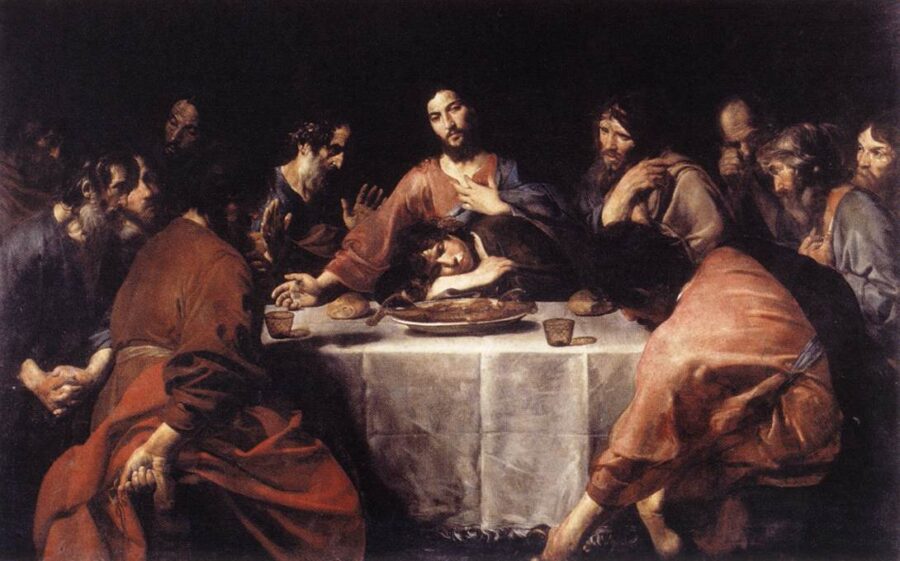At the table sat seven fishermen, a tax collector, a zealot, and the other three apostles who at the very least were Jews.
If you’re like me and grew up in 21st century United States, then that probably wasn’t the most eyebrow raising description. Except for the tax collectors, because I don’t think the majority of us have happy feelings when we think of the IRS. But what was it actually like?
The fishermen were probably your typical blue collar workers. They went to synagogue, they did their work, and they lived their lives.
A tax collector was viewed more along the lines of a legal traitor. Imagine if the IRS could show up at your doorstep, hike up taxes an extra 15%, and demand the family dog. Now imagine it’s your childhood best friend who swore he’d never join the dark side, and now we have the social setting of the tax collector.
Zealots were, as you can guess, the zealous ones. Imagine a guy who hates the government, finds them to be utterly oppressive and invasive, and is constantly trying to overthrow the government via politics while simultaneously trying to get all the churches to rise up in revolt against the oppressive government.
So at this dinner table, surrounding Jesus, we have seven fishermen, Judas, and two sworn enemies:
Matthew the Tax Collector and Simon the Zealot.
Naturally a tax collector and a zealot would be at ends, hating each other as sworn enemies, not even willing to be seen with the other. But Jesus comes onto the scene, and now these sworn enemies have been united as slaves to one master. These two sworn enemies not only found themselves in the same room, but found themselves breaking the same bread, drinking the same wine, and serving the same master. Jesus was not concerned only with reconciling man to God, but also reconciling man to man.
“Whoever claims to love God yet hates a brother or sister is a liar. For whoever does not love their brother and sister, whom they have seen, cannot love God, whom they have not seen.” – 1 John 4:20
The scene of the last supper shows us something very important:
If we have any allegiance to Christ, we must also have allegiance to those who have allegiance to Christ as well. If Jesus has accepted our brothers and sisters, then we must accept our brothers and sisters. If Jesus suffered, was put to shame, and died for those who would be called our brothers and sisters, then we too much suffer, be put to shame, and die for our brothers and sisters. If there is a cross to bear, we must bear it.
” This is how we know what love is: Jesus Christ laid down his life for us. And we ought to lay down our lives for our brothers and sisters.” – 1 John 3:16
Laying down our lives is not a one time act – it’s a lifestyle of servitude and willingness to suffer on behalf of another. Unfortunately, in the news and sadly within many Christian circles, much hostility as taken over our daily lives.
With the death of Philando Castile a week ago, race issues once again became a hot topic for conversation. Well it did for people not typically affected by it anyways, I’m sure people who have to deal with it never exactly forgot about it. Though I would say I’m correct in assuming that’s indicative of the actual problem:
Brothers and sisters are suffering, and an entire part of the body is not hearing about it nearly as much, nor even in the correct avenue, as they should be. Internet arguments are had, incredible amounts of unhelpful memes are splattered across Facebook, combative hashtags are trending, ears are being plugged and loudspeakers are being blared. And nothing is getting done.
“As a prisoner for the Lord, then, I urge you to live a life worthy of the calling you have received. 2 Be completely humble and gentle; be patient, bearing with one another in love. 3 Make every effort to keep the unity of the Spirit through the bond of peace. 4 There is one body and one Spirit, just as you were called to one hope when you were called; 5 one Lord, one faith, one baptism; 6 one God and Father of all, who is over all and through all and in all.” – Ephesians 4:1-6
I’ve seen a great division in the body, and it usually is between people who don’t interact very often. Even less, they probably don’t have meals with each other very often either. But we see not only in Jesus’ ministry, but throughout the epistles the importance of breaking bread with one another, of being in complete unity.
Maybe a large part of the problem within the conversations about race and reconciliation is that we don’t have more of them over a true Communion meal. Even more basic, maybe the fact that the meal aspect of Communion has been stripped away and replaced with an existential experience is the heart of this ever increasing division within the body. We see in the the scriptures that Communion was hardly a time dedicated to purely self reflection and mere remembrance, but instead was a time to share an entire meal, eat from the same bowl, drink from the same cup, and more fully enter into the same fate that Christ himself had, one where he would wash his disciple’s feet, one that would lead him to the cross.
I believe that every hostility between a disciple finds its death in the cross, and every disciple finds their way to the cross by keeping their eyes on Christ, who lead his disciples to the dinner table before he made his way to the cross.
If we want to follow Jesus, we must not only partake in Communion for the sake of checking a sacrament off our Sunday checklist, nor must we only partake in it in order to fulfill our quota of existential guilt and vindication, but we must partake in it by way of its true calling to us: “And he took bread, gave thanks and broke it, and gave it to them, saying, ‘This is my body given for you; do this in remembrance of me.'”
Brothers and sisters are suffering. If there is time to be critical of their suffering, there is time to spend at the dinner table to learn of it and partake in that suffering with them. As a Church, the body of Christ, it’s time we start returning to Communion being a meal, and it’s time we start breaking bread with the entire body, not just those in the same social class as us.





Leave a Reply
Your email is safe with us.